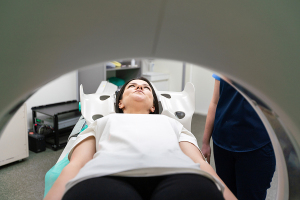by
John R. Fischer, Senior Reporter | August 23, 2023

The UK government has reduced its cancer care targets from ten to three.
In a newly developed plan, NHS England says providers will need to diagnose or rule out cancer within one month of a patient being urgently referred.
Under current guidelines, cancer patients must be seen within 14 days but often wait longer. The government’s strategy, which takes effect in October, aims for 75% to be diagnosed within 28 days and eventually 80% by 2025/2026. It consolidates the country’s 10 cancer performance standards into three:
- The 28-day Faster Diagnosis Standard, where patients urgently referred for suspected cancer by a GP, screening program, or another route must be diagnosed within 28 days.



Ad Statistics
Times Displayed: 46588
Times Visited: 1409 MIT labs, experts in Multi-Vendor component level repair of: MRI Coils, RF amplifiers, Gradient Amplifiers Contrast Media Injectors. System repairs, sub-assembly repairs, component level repairs, refurbish/calibrate. info@mitlabsusa.com/+1 (305) 470-8013
- The 62-day referral to treatment standard, where patients diagnosed with cancer must start treatment within the next 62 days (nine weeks).
- The 31-day decision to treat, whereby patients must start treatment within 31 days of a decision being made to proceed with that first or subsequent treatment.
“The updated ambitions will mean the NHS can be even more focused on outcomes for patients, rather than just appointment times,” professor Sir Stephen Powis, national NHS medical director, said in a statement.
But critics like Richard Sullivan, professor of cancer and global health and director of the Institute for Cancer Policy at King’s College London, say these changes are a feeble attempt by the government to “absolve” itself from failing to meet standards in the first place.
“New indicators will not ‘improve’ diagnostic or treatment times. They simply reflect system performance and now that there are only three, that view of the system is greatly reduced,” he told HCB News.
Professor Pat Price, oncologist and co-founder of the #CatchUpWithCancer campaign and chairwoman of charity Radiotherapy U.K.,
told The Evening Standard that the 75% target should be around 95% and that the strategy may not help speed up treatment times and is not a solution to “the current disastrous cancer performance” of the NHS.
“The only measure that will ‘move the dial’ is the development and implementation of a radical new plan backed up with smart investment in people and kit,” she said.
But Genevieve Edwards, chief executive for Bowel Cancer U.K., welcomed the changes, saying they would allow NHS policymakers and government to “identify parts of the country that may need extra support and funding to improve waiting times and speed up diagnosis.”
According to the government, which sought feedback for developing new cancer standards in March 2022, GPs will continue referring patients in the same way but new technologies and treatments, including straight-to-test pathways, remote consultations, and AI and telehealth, will enable patients to be seen without necessarily having an appointment first. Hospitals have also been asked to return results within 10 days for patients urgently referred.
The NHS will invest £2.3 billion to expand diagnostics services and £1.5 billion for treatment over the coming years to meet growing cancer care demands. It will also publish more detailed cancer statistics on additional individual cancers each month and compare current performance statistics to old ones.

